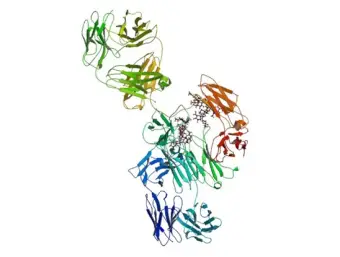Ravtansine API Manufacturers & Suppliers
Find, compare & contact
Filters
Custom request?
Type
Production region
Qualifications
Country of origin
Producer
Produced in:
Established in: 2019
MOQ: 1 kg
Employees: 10+

Focused on pharmaceutical industry

Reasonable price for the customers

Full service from R&D stage to commercial stage
+ 0
All certificates
How does it work?
You can register for free as long as you are registering on behalf of a legal company related to the pharmaceutical industry
Search in the search bar the product that you’re looking for. We’ll show you an overview of all available suppliers. Use the filters to select the relevant suppliers only
Have you found interesting suppliers? Then it’s time to contact them. Use the send inquiry button and send them a message. You can send for each product, 3 inquiries per week
Suppliers get notified by Pharmaoffer that they’ve received a new inquiry. They will come back to you with their questions, certificates, and offer in the chat on Pharmaoffer. We will send you an email in case of any news
Does the supplier meet your quality and commercial requirements? Then you can place the order. Just follow the steps of our order module
Looking for Ravtansine API 796073-69-3?
- Description:
- Here you will find a list of producers, manufacturers and distributors of Ravtansine. You can filter on certificates such as GMP, FDA, CEP, Written Confirmation and more. Send inquiries for free and get in direct contact with the supplier of your choice.
- API | Excipient name:
- Ravtansine
- Synonyms:
- DM4
- Cas Number:
- 796073-69-3
- Unique Ingredient Identifier:
- WOB38VS2NI
Ravtansine is a type of Monoclonal antibodies
Monoclonal antibodies are a subcategory of pharmaceutical active pharmaceutical ingredients (APIs) that play a crucial role in the field of biopharmaceuticals. These antibodies are produced by cloning a single type of immune cell to create identical copies, allowing for targeted treatment of various diseases.
Monoclonal antibodies have gained significant attention in recent years due to their potential in treating a wide range of conditions, including cancer, autoimmune disorders, and infectious diseases. Their specificity and ability to bind to specific antigens make them highly effective therapeutic agents.
These pharmaceutical APIs are typically developed using hybridoma technology or recombinant DNA technology. Hybridoma technology involves fusing antibody-producing cells with immortalized cells to create hybrid cells that produce large quantities of monoclonal antibodies. Recombinant DNA technology, on the other hand, utilizes genetically engineered organisms such as bacteria or mammalian cells to produce monoclonal antibodies.
The production of monoclonal antibodies requires stringent quality control measures to ensure purity, potency, and safety. Extensive characterization and validation tests are conducted to assess their binding specificity, stability, and absence of contaminants.
Monoclonal antibodies have revolutionized the pharmaceutical industry, offering personalized treatment options and improving patient outcomes. They provide targeted therapy with fewer side effects compared to traditional treatments. The development and use of monoclonal antibodies continue to expand, with ongoing research aiming to enhance their effectiveness and broaden their applications.
In summary, monoclonal antibodies represent a significant advancement in the field of biopharmaceuticals, offering targeted therapy for a variety of diseases. Their precise mechanism of action and potential for personalized treatment make them a promising class of pharmaceutical APIs.
Ravtansine (Monoclonal antibodies), classified under Immunomodulators
Immunomodulators, a category of pharmaceutical active pharmaceutical ingredients (APIs), are substances that help regulate and modify the immune response of an individual. These compounds play a crucial role in treating various immune-related disorders and diseases. Immunomodulators work by either enhancing or suppressing the immune system, depending on the specific condition being treated.
Immunomodulators are used in the treatment of autoimmune disorders, such as rheumatoid arthritis, multiple sclerosis, and psoriasis. By suppressing the immune system, these APIs help reduce the overactive immune response associated with these conditions, thereby alleviating symptoms and preventing further damage to the body's tissues.
On the other hand, immunomodulators are also employed to boost the immune system in cases of immunodeficiency disorders. These APIs stimulate the immune response, enabling the body to better fight off infections and diseases. Additionally, immunomodulators are utilized in the prevention and treatment of organ transplant rejection, where they help modulate the immune system to accept the transplanted organ.
The development and production of immunomodulators require rigorous testing and quality control to ensure their safety and efficacy. Pharmaceutical companies carefully formulate these APIs into various dosage forms, including tablets, capsules, injections, and topical preparations, to cater to different patient needs.
In summary, immunomodulators form a vital category of pharmaceutical APIs that regulate and modify the immune system. With their ability to modulate immune responses, these compounds contribute significantly to the management and treatment of various immune-related disorders and diseases, improving the quality of life for many patients.
Ravtansine manufacturers | traders | suppliers
We have 1 companies offering Ravtansine produced in 0 different countries.
Get in contact with the supplier of your choice:
- Apino Pharma Co., Ltd. from China, product country of origin China
Let the supplier know whether you are looking for a product with a specific monograph such as EP (Ph. Eur.), USP, JP, BP or another quality. Or, whether you are looking for hydrochloride (HCl), anhydricum, base, micronisatum or a specific purity.
You can use the filters to find high-quality suppliers. For example, you can select GMP, FDA or ISO certified suppliers. Visit our FAQ page or use the chat box in the corner to get more information about Pharmaoffer.









